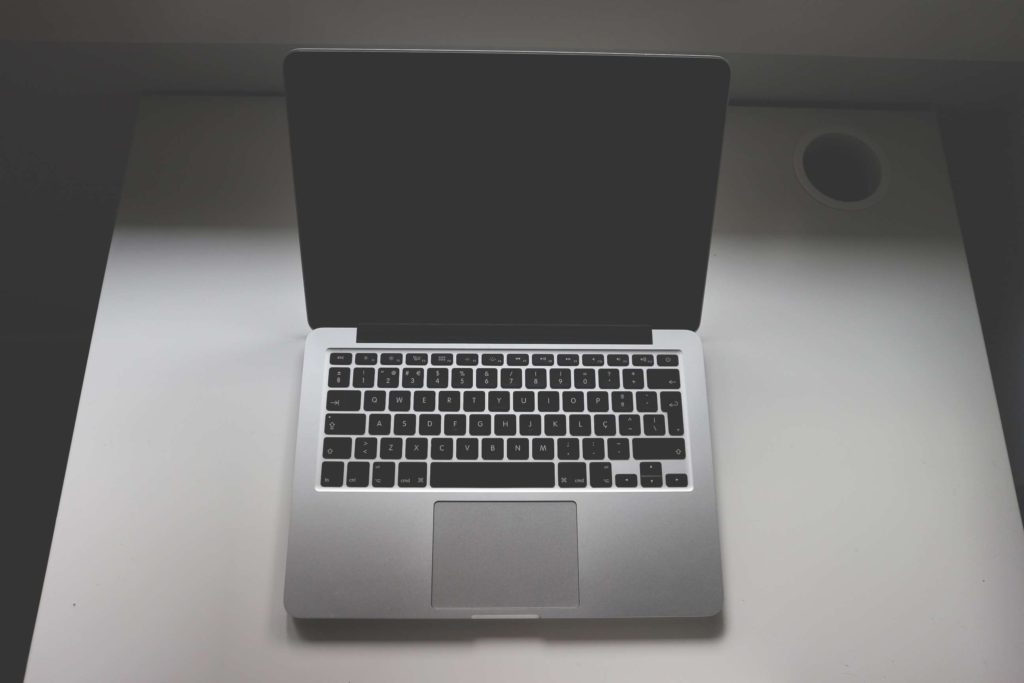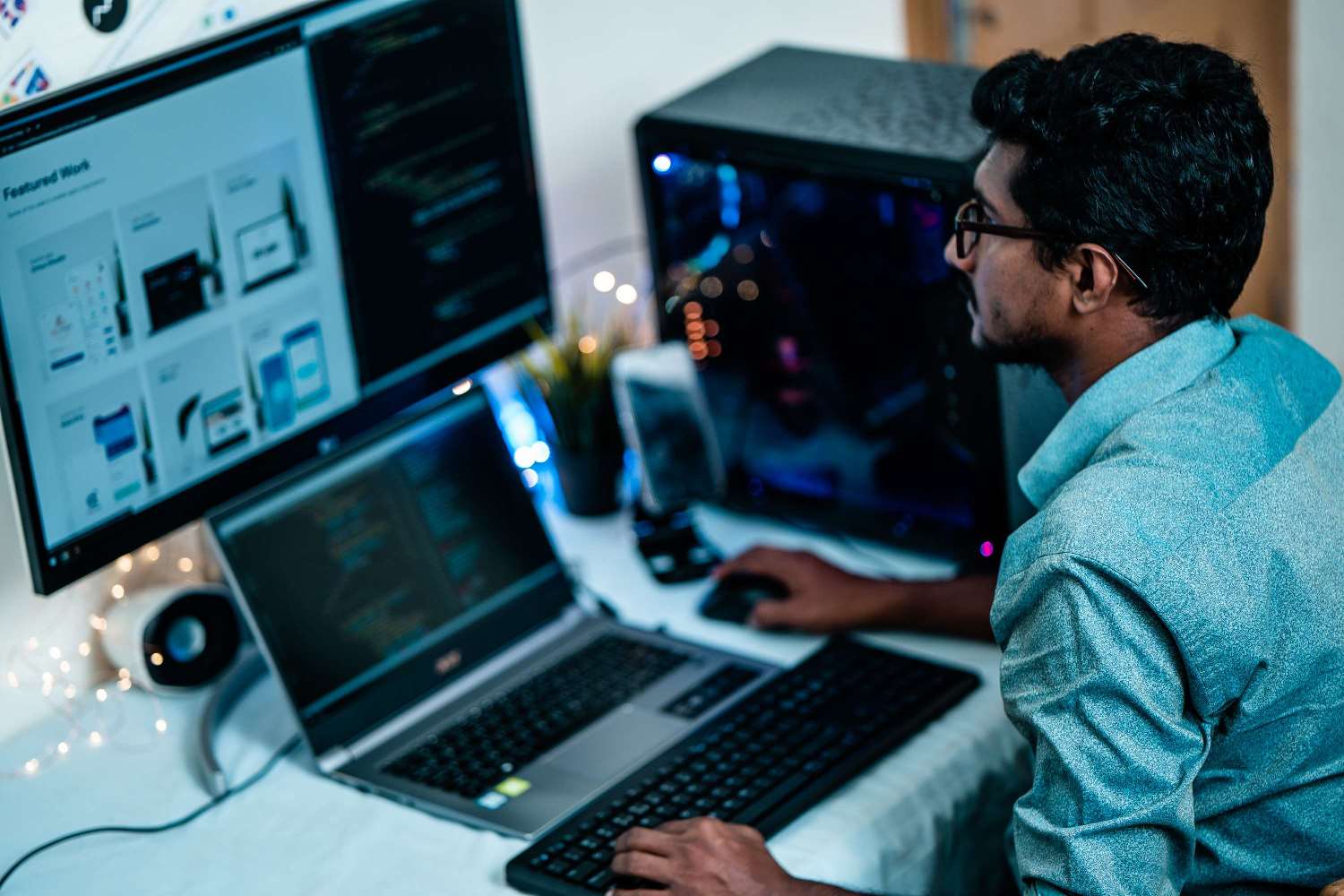Computers have evolved over the years from large and bulky machines to small devices you can hold in your hands or wear around your wrists as in smartwatches. The term “computer,” however, has remained the same.
Whereas some people argue that laptops aren’t PCs, others strongly believe that they’re PCs. There’s been some controversy regarding this issue, hence the need for clarification. So, let’s define a laptop and a PC to determine if the former is a PC or not.
What is a Laptop?
Also known as a notebook computer or a laptop computer, a laptop is a small computer built with an alphanumeric keyboard and a screen for easy portability. The computers come in the form of a clamshell with the keyboard mounted on the lower lid and the screen on the top lid from the inside.
However, some forms of 2-in-1 laptops feature a detachable keyboard. The ability to fold-shut laptops and their light weights (less than 5 pounds and 3 inches – thickness) make them easy to transport for mobile use.
When using a laptop, you place it on your lap, hence how it obtained its name. Although Americans use the terms “notebook computer” and “laptop computer” interchangeably, other English-speaking nations use one of the terms.
Originally, the term “notebooks” was used in reference to a particular laptop size that was lighter and smaller than earlier laptops. Today, a “notebook” is a laptop computer of any size.
Uses of a Laptop Computer
Laptops, unlike desktop computers, are more complex and difficult to design and produce. As a result, they’re more costly. Some popular laptop manufacturers include Apple, IBM, Acer, Dell, Compaq, HP, and Toshiba.
With a docking station, a hardware frame for connecting external input and output devices (such as a large screen and a printer), you can convert your laptop into a desktop computer. Laptops are either AC- or battery-powered, and they support use in temporary spaces, such as libraries, airplanes, meeting venues, outdoor spaces, and temporary offices.
The versatile nature of laptops makes them ideal for use in different application areas, including education, work, playing games, personal multimedia, internet or web browsing, and general home use. Laptop computers are ideal for persons who:
- Rarely work at home
- Frequently use computers away from work
- Perform light work (conference calls, word processing, web browsing, etc.), and
- Play casual computer games or none at all.

What is a PC?
A personal computer (PC) is a portable computer you can use indoors in your house or at work, and even move around with it for individual or personal use. In 1977, when the Apple II, the Commodore PET (Personal Electronic Transactor), and Tandy Radio Shack TRS-80 – pre-assembled personal microcomputers – were invented, personal computers became popular.
IBM, the computer giant, developed the IBM PC – IBM model 5150 – its first PC in 1981. The PC gained immediate popularity after its release to become the standard PC from which many computer brands produced (cloned) their own PCs.
Designed to initially use Microsoft Disk Operating System (MS-DOS), the IBM PC later began to operate on Microsoft’s Windows operating system. A PC is smaller and more portable, and affordable than other types of computers on the market. PC specifications include:
- A central processing unit (CPU)
- An integrated circuit
- Read-only memory (DVD-ROM and Hard disk)
- Random access memory (RAM)
- Output devices – a printer and display monitor or screen.
- Input devices – a mouse and keyboard.
Personal computers vary in size, shape, and type, and the term PC is also used to differentiate a laptop or desktop computer running Windows from an Apple computer. The term also indicates that the personal computer is portable.
A PC is also known as a microcomputer because it uses one microprocessor or chip as the central processing unit (CPU). It’s also commonly known as an ultra-portable computing device (UPC) or notebook.
A desktop computer was the first PC to be invented, but it’s just one type of PC designed for everyday use. Apart from a desktop computer, a smartphone, all-in-ones, a tablet, or a wearable are other types of personal computers.
Is a Laptop Considered a PC?
Yes. Based on the definitions of the terms “laptop” and “PC” above, a laptop is indeed considered a PC.
A laptop is often used for personal reasons by an individual. You can use your laptop on your lap or desk as you deem fit, making it a personal computer. This explains why some people initially referred to it as a laptop computer or a laptop PC.
A laptop can perform everything a personal computer does because it has all the features of a PC. It’s a smaller-sized, portable, and cheaper (than supercomputers and mainframes) all-in-one (has computer hardware and software) PC for personal or individual use.
Conclusion
A laptop is a computing device with fewer or more elements than a conventional desktop computer. It’s small, battery- or AC-operated, and lightweight, supporting use on the laps. The computer is portable for use on the go in temporary spaces, such as libraries, airplanes, and meeting venues.
You can connect your laptop to a docking station to connect it to peripheral devices, such as a keyboard, a monitor or screen, and a mouse, turning it into a desktop. Laptops come in a foldable, compact design for easy transportation and thus portability. They support personal use in offices and at home, making them personal computers (PCs).
Apart from individual use on your lap or desk, laptops perform all the functions of personal computers and come in smaller, lightweight sizes. Moreover, it has all the components of a PC, including input (a mouse and a keyboard) and output (a screen or monitor and a printer) devices.
In this article, we provided all the reasons why a laptop is a personal computer. If you were asking yourself, “Is a laptop a PC?” We hope that we’ve answered your question. Leave your feedback or comments in the box below to let us know your thoughts on this article topic.

